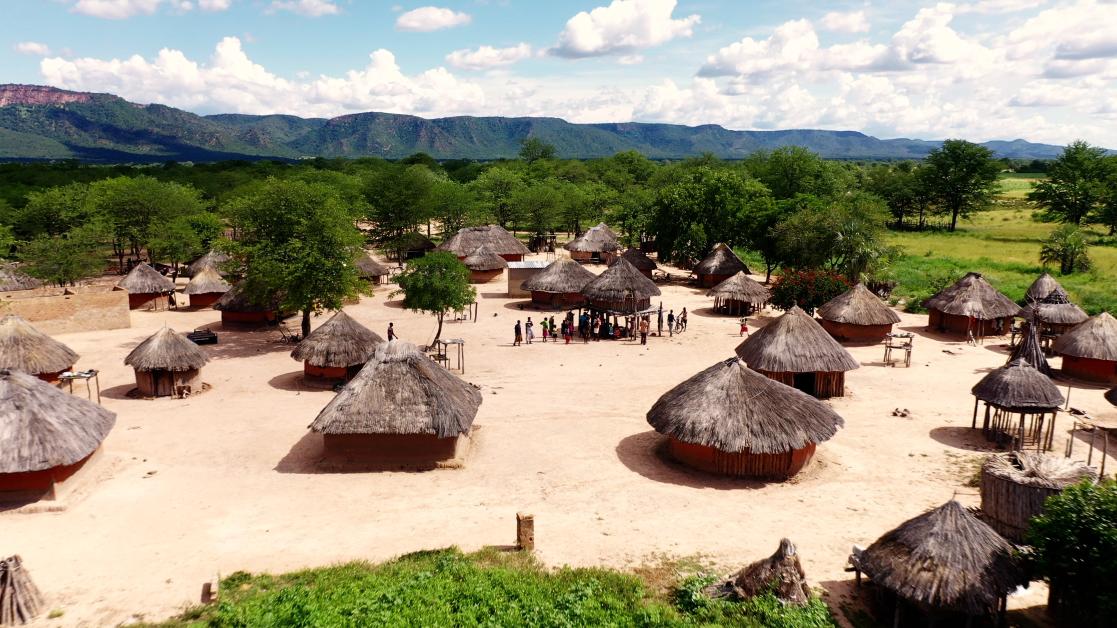SUSTAINABLE WILDLIFE MANAGEMENT PROGRAMME
The Sustainable Wildlife Management (SWM) Programme, funded by the European Union, is a comprehensive initiative aimed at promoting environmental sustainability and the sustainable use of wildlife resources. Central to the programme's approach is the active inclusion and empowerment of women, ethnic minorities, and marginalized groups in all its activities. This gender-sensitive approach ensures that the benefits of conservation efforts are equitably shared and that all community members have a voice in the decision-making processes that affect their livelihoods and the environment.

FAO David Mansell Moullin 2024
The SWM Programme has set a clear objective in terms of inclusion: in 100 percent of SWM sites, 100 percent of activities with beneficiaries at both field and national levels must ensure the representativeness, active participation, and empowerment of women and ethnic minorities, where present. This objective reflects the programme's commitment to gender equality and social inclusion as fundamental principles in its conservation and sustainability efforts.
Empowerment and Participation of Women and Local Communities
Since its inception, the SWM Programme has prioritized the involvement of local populations in the implementation of its activities. At the core of the programme is the empowerment of women, men, boys, and girls from local communities, ensuring their active participation in all project activities. This inclusive approach aims to increase the active participation of women and men, as well as ethnic minorities and marginalized groups, providing them with equal access to resources, services, and decision-making processes.
Key Mechanisms for Inclusion and Participation:
- Free, Prior, and Informed Consent (FPIC): This mechanism ensures that all community members, including women and ethnic minorities, are fully informed about the activities and have the opportunity to consent or raise concerns before any project actions are taken.
- Grievance Redress Mechanism (GRM): The GRM provides a platform for addressing any grievances or issues that may arise during the implementation of the programme, ensuring that all voices, particularly those of women and marginalized groups, are heard and respected.
Social Safeguards and Gender Equality
The SWM Programme is committed to respecting and promoting the human rights of women and men from indigenous and local communities in all its activities. To this end, the programme has implemented robust social safeguards (SoS) at each site, which include a community rights-based approach, FPIC, and GRM. These tools are designed with special attention to gender equality and women’s empowerment, ensuring that all activities adhere to best practices in research ethics and promote gender inclusivity.
Mainstreaming Gender in Project Implementation
The SWM Programme has provided specific support to mainstream gender throughout the project cycle, from design to monitoring and evaluation (M&E). This includes:
- Baseline Gender-Sensitive Surveys: These surveys are designed to gather data that reflects the different needs, roles, and impacts on women and men, providing a foundation for gender-responsive planning and implementation.
- Technical Assistance and Gender Strategies: The programme offers technical assistance in developing gender strategies that are tailored to the specific context of each site. This includes the formulation of gender-sensitive indicators to monitor and evaluate progress toward gender equality objectives.
- Gender Mainstreaming in Tools: The SWM Programme has integrated gender considerations into specific tools, such as Benefit Needs Surveys (BNS) and letters of agreement, ensuring that gender perspectives are consistently applied throughout the project.




